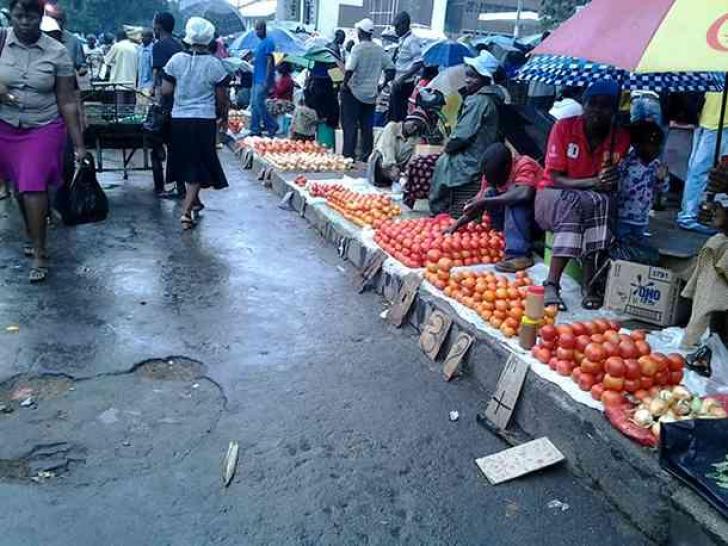News / Local
Vendors, Mnangagwa's govt head for showdown over Sadc swoop
15 Jul 2024 at 07:15hrs |
0 Views

Informal trader representatives in Harare have expressed strong opposition to the government's plans to evict them from the central business district (CBD) ahead of the Sadc Summit. The government aims to enhance the city's image and ensure cleanliness for the international event, prompting officials to announce immediate clearance measures.
Wisbon Malaya, secretary-general of the Zimbabwe Chamber of Informal Economy, criticized the decision, arguing that street vending is crucial for survival in a struggling economy where 94.5% of employment is informalized, with 86% relying solely on vending. He condemned the government's move as neglecting the plight of the poor, accusing authorities of treating vendors as disposable objects and exacerbating poverty.
Malaya called for government collaboration with local authorities to establish vendor-friendly market spaces instead of resorting to harassment and confiscations reminiscent of colonial-era practices. He emphasized the need for dialogue and urged reconsideration of the eviction plan, highlighting its adverse impact on vulnerable citizens.
Samuel Wadzai, executive director of Vendors Initiative for Social and Economic Transformation, echoed these sentiments, labeling the government's decision as misguided and detrimental to livelihoods. He emphasized the importance of providing alternative spaces and respecting the rights of informal traders rather than forcing them off the streets without viable alternatives.
The informal trader representatives emphasized the need for a balanced approach that respects both legal requirements and the economic realities faced by vendors, urging the government to reconsider its strategy and engage in constructive dialogue to find a sustainable solution.
Wisbon Malaya, secretary-general of the Zimbabwe Chamber of Informal Economy, criticized the decision, arguing that street vending is crucial for survival in a struggling economy where 94.5% of employment is informalized, with 86% relying solely on vending. He condemned the government's move as neglecting the plight of the poor, accusing authorities of treating vendors as disposable objects and exacerbating poverty.
Malaya called for government collaboration with local authorities to establish vendor-friendly market spaces instead of resorting to harassment and confiscations reminiscent of colonial-era practices. He emphasized the need for dialogue and urged reconsideration of the eviction plan, highlighting its adverse impact on vulnerable citizens.
Samuel Wadzai, executive director of Vendors Initiative for Social and Economic Transformation, echoed these sentiments, labeling the government's decision as misguided and detrimental to livelihoods. He emphasized the importance of providing alternative spaces and respecting the rights of informal traders rather than forcing them off the streets without viable alternatives.
The informal trader representatives emphasized the need for a balanced approach that respects both legal requirements and the economic realities faced by vendors, urging the government to reconsider its strategy and engage in constructive dialogue to find a sustainable solution.
Source - newsday
Join the discussion
Loading comments…































